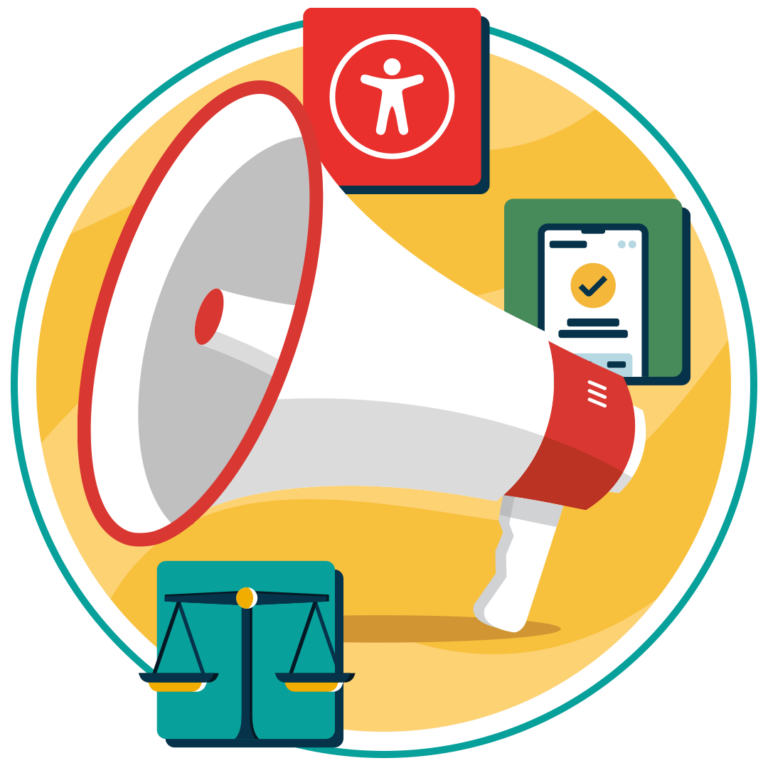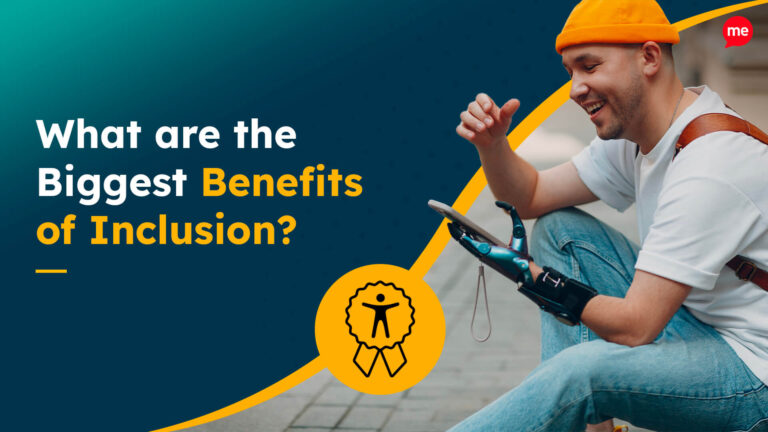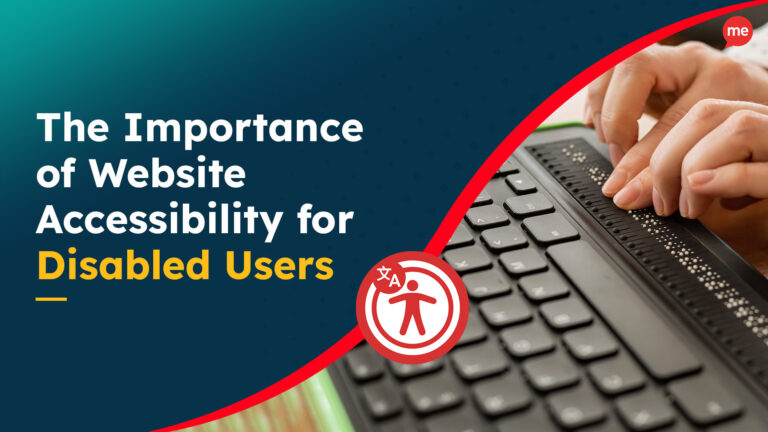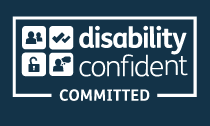Get Your Free Accessibility & Inclusion Toolkit
Download NowAccessibility is no longer a niche consideration; it’s a fundamental aspect of modern business strategy. As the digital landscape becomes more complex, so too do the needs and requirements of its users, meaning emphasis on accessibility is needed now more than ever. Accessibility bridges the gap between an organisation’s customers and its services, granting people of all abilities unrestricted access to products, services, and information that they may not have otherwise had access to.
Clearly, there is a compelling business incentive to invest in such strategies. More than just an ethical decision, it’s a business-smart decision; one where any business, particularly those with an online presence, stand a lot to gain.
What is the Business Case for Accessibility?
The business case for accessibility is rather impressive, and there should be no shame in saying that. Of course, the ethical standing of inclusivity is reason enough to build that wheelchair ramp, translate those key documents, or invest in that online accessibility tool. But it is also important to understand how you can benefit commercially, given that this is ultimately the purpose of running a for-profit business.
Accessibility influences a broad range of mechanisms, which, collectively, lead to increased business growth and a stronger bottom line. These mechanisms constitute the business case for accessibility best practices, and have been outlined below:
Each mechanism will be explained in greater detail throughout this article.
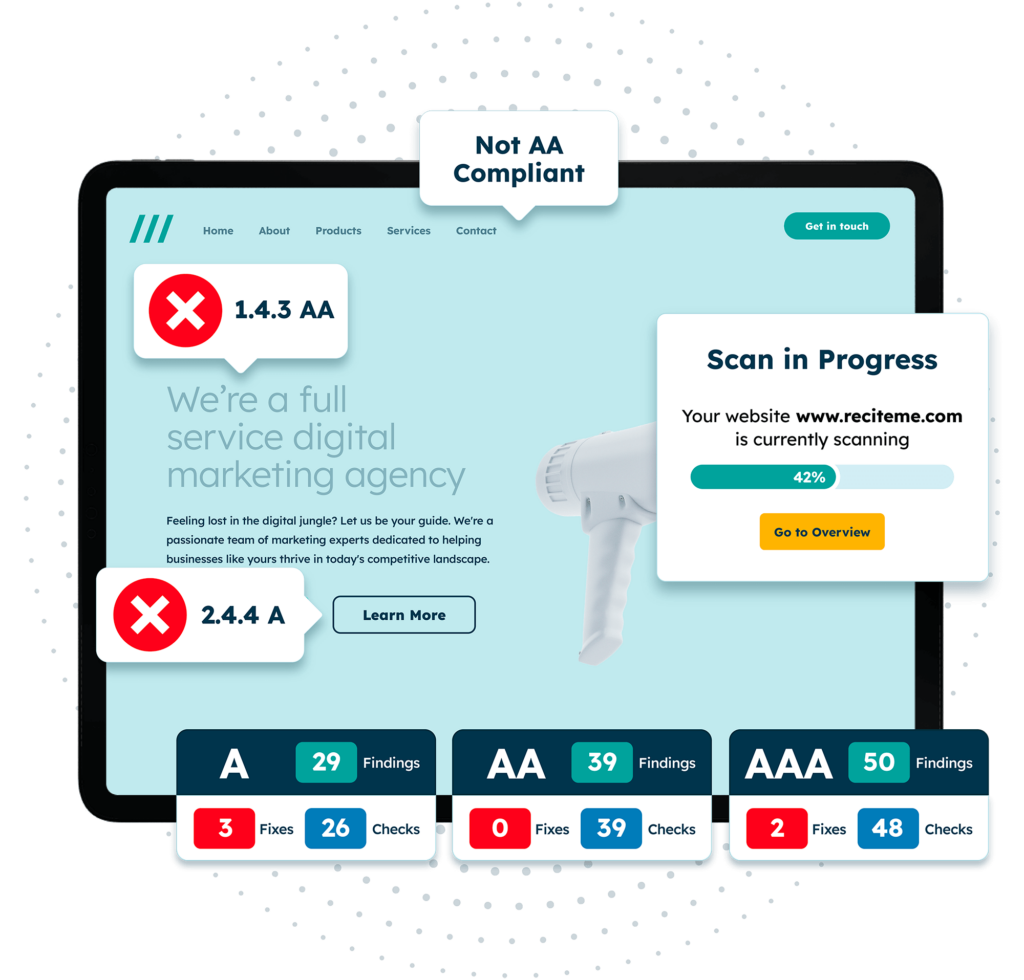
Free Accessibility Check of your Website
Finding accessibility issues is now easier than ever. Recite Me offers a free automated scan of your website’s homepage to highlight non-compliance. You’ll get recommendations on how to fix them, helping to improve your accessibility score.
Market Reach and Inclusivity
Expanding Customer Base
According to the World Health Organization (WHO), 16% of the world’s population, or some 1.3 billion people, have a disability of sorts. This represents a significant share of the global market; one that can go untapped if not catered to with disability-specific accessibility strategies. For instance, an e-commerce site that does not use well-structured HTML code and descriptive alt text for images will not be compatible with screen readers, ruling out any potential clients with blindness or vision impairments. Without the necessary means to be able to navigate your website, these users cannot convert to paying customers.
Another significant market affected by accessibility is the ageing and elderly. According to the United Nations, it is predicted that by 2050, 17% of the global population will be above the age of 65. Older adults often face accessibility challenges similar to those encountered by people with disabilities, such as the deterioration of vision and hearing. Therefore, by providing tools to overcome these challenges, in the form of SaaS products like Recite Me’s accessibility toolbar, you are able to tap into, not one, but two growing markets. This allows you to expand your pool of potential customers without much, if any, additional investment, giving you access to prospects that you would struggle to reach otherwise.
With all this in mind, as well as being a major growth opportunity, investing in accessibility is a means of future proofing your business against future shifts in global demographics.
Enhancing Customer Loyalty
Creating an inclusive environment fosters strong brand loyalty. A study by Nielsen found that 66% of consumers are willing to pay more for products and services that come from companies who are committed to positive social impact, which includes accessibility efforts.
This is because, when customers feel valued and included, they are more likely to develop a positive perception of the brand they are buying from and are less likely to jump ship as a result. Even if competing brands are advertising similar products at a lower price, most customers will stay loyal, comforted by the knowledge that they are using their buying power for good. But curating a positive brand reputation is not only about retaining the customers you already have; word-of-mouth referrals and a strong community standing inevitably lead to an influx of new customers, helping your business grow too.
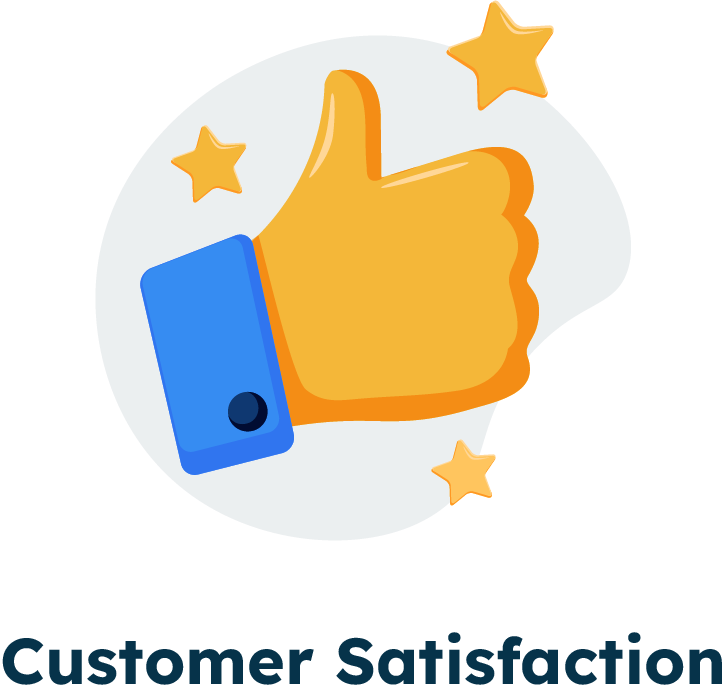
Legal and Compliance Benefits
Compliance with accessibility standards is not just a moral obligation but, in many jurisdictions, a legal requirement too. The Web Content Accessibility Guidelines (WCAG), set out by the World Wide Web Consortium (W3C), provide a global standard for web accessibility. By following WCAG best practices and hitting certain success criteria, business owners can be sure that they will not face any legal action in regard to their online accessibility, or lack thereof.
Many parts of the world have their own accessibility laws and regulations. So, as well as operating within the framework of the WCAG, they are also held accountable by their own governments. The European Accessibility Act and the UK’s Equality Act impose accessibility requirements that could affect your organisation. Non-compliance with any of these can result in costly litigation fees, fines, and damage to your company’s reputation.
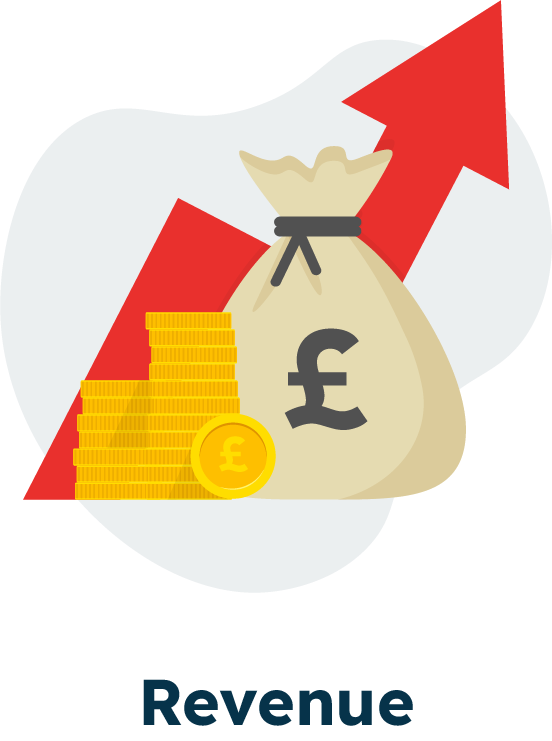
Financial Performance and ROI
Cost Savings
Accessibility offers a rare opportunity to cut costs while simultaneously driving growth. These cost savings come mostly as a result of reduced demand for customer support, particularly when it comes to websites and digital products. This is because as a website becomes more accessible, it becomes easier to use, understand, and navigate for people with disabilities like visual impairments or hearing difficulties. Costs associated with solving accessibility issues are reduced as a result. Think of accessibility as a proactive approach to preventing costly challenges from arising further down the line.
Revenue Growth
At first glance, the link between accessibility and revenue growth may not be so obvious. But in fact, accessibility is one of the key drivers affecting number of sales and customer retention. A study by Accenture found that companies who prioritise accessibility practices saw revenue increases averaging 28% over a four-year period.
There are numerous mechanisms at play here. As products and services become more accessible, they attract a wider audience, encourage higher rates of customer satisfaction, and ultimately lead to repeat business and customer loyalty. All of these factors contribute to increased sales and higher revenues.
Innovation and Competitive Advantage
Driving Innovation
Accessibility drives innovation by encouraging companies to think creatively about how to meet diverse user needs. Many assistive technology examples such as voice recognition and text-to-speech were novel inventions that have now become mainstream technologies used across a broad range of applications. Consider the development of the voice-activated assistant, Siri, by Apple. Its initial concept was driven by accessibility needs but has since become widely used by all users. This is a prime example of how innovation, spurred by accessibility, can lead to new products, features, and services that provide a competitive edge to your business offerings.
Market Differentiation
Companies that prioritise accessibility distinguish themselves in the marketplace. They are seen as leaders and innovators, setting standards for others to follow. This attracts a loyal customer base and generates positive media attention. Companies like Google, for example, have received widespread acclaim in the past for their adoption of accessibility features. Drawing all this positive attention not only boosts a company’s reputation but also sets them apart from competitors, giving them a competitive edge and positioning them as a committed industry leader.
Corporate Social Responsibility (CSR) and Ethics
Enhancing CSR
Accessibility is a key component of corporate social responsibility. Companies that prioritise accessibility demonstrate a willingness to take an ethical stance on societal issues. This not only enhances the public’s perception of said company, but helps build trust with consumers, investors, and the broader community too. For example, businesses that actively promote initiatives that break down accessibility barriers often receive recognition and awards.
Employee Retention and New Talent Acquisition
Companies that prioritise accessibility and inclusivity attract a diverse workforce by the very nature of them catering to all types of people. This acquisition of new talent brings a variety of different perspectives and skills to the table, encouraging company-wide innovation.
Inclusive companies also experience higher rates of employee retention. According to a report by the Center for Talent Innovation, employees in inclusive companies are 39% more likely to feel engaged at work, resulting in them staying at that company for much longer. This shows the importance of a strong employer brand. Additionally, with a reduced staff turnover, significant cost savings associated with reduced recruitment requirements can be expected.
You can learn more about strategies to implement with our inclusive recruitment checklist and our blog on D&I strategies in recruitment.
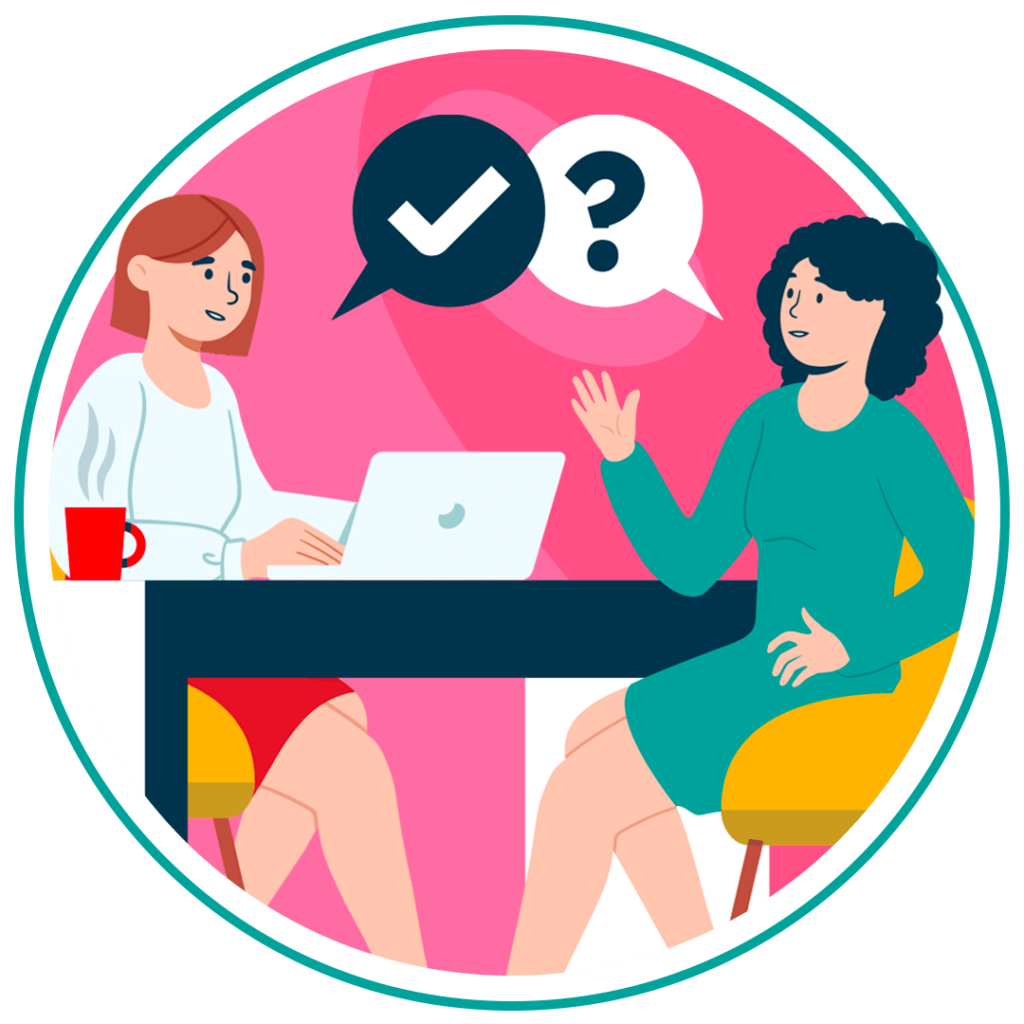
User Experience Improvements
Enhanced Usability
Imagine a scenario where a potential customer arrives at your website with the best of intentions, eager to find out what your company is about, what type of products you sell, and the different services you offer. If your website is clunky and difficult to navigate, it won’t be long before this individual gives up, going from a potential customer to a lost opportunity in a matter of minutes.
Many of the cornerstone features of digital accessibility are rooted in improving website clarity, structure, and overall navigability. Take alt text for images as an example; this was designed to aid individuals with disabilities by ensuring online content is compatible with screen readers. However, this doesn’t just benefit those with vision impairments, it enhances usability for all users. Those with slow internet connections, for example, who may not be able to load images, can still receive important details of the missing media.
Well-structured content, clear navigation, and keyboard accessibility are all examples of accessibility strategies that enhance overall website usability as a by-product. The more usable a website is, the quicker users are able to find the information they are looking for, and the more likely they are to arrive at your main product pages, where the sales are made.
Positive Feedback Loop
One of the best kept secrets concerning accessibility is that it naturally lends itself to a continuous cycle of feedback and subsequent product improvement. This is because accessible websites and digital platforms are generally much more usable, as we’ve already discussed. Users spend more time engaging with the content, and are thus better positioned to provide high-quality feedback.
This enables companies to make continual improvements to their products and services, creating an iterative process that ensures products remain high-quality and relevant to a broad audience. The result? Better quality products, higher rates of user satisfaction, and all the benefits that follow.
Our 40-page Digital Accessibility & Inclusion Toolkit helps businesses break down online barriers and make a real impact. It offers practical advice on all aspects of digital accessibility, from writing an accessibility statement to accessible website tips and inclusive hiring.
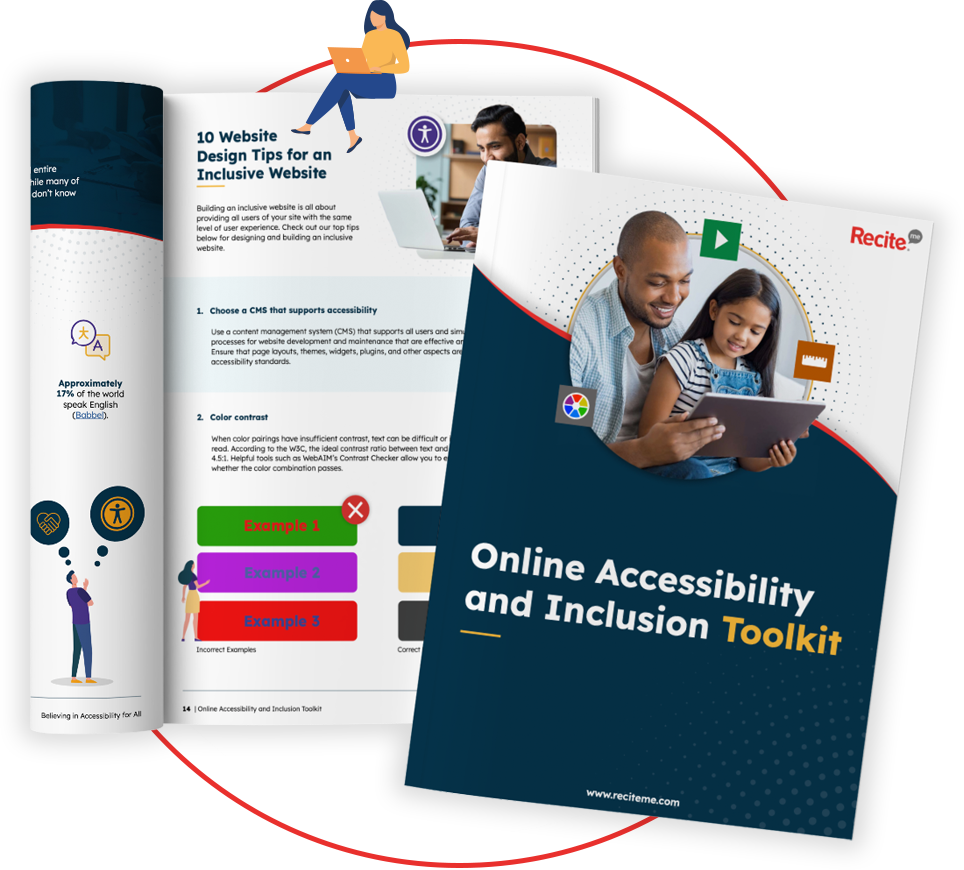
The Need for Accessibility in the Modern World
In the current climate, accessibility is more important than ever. That is because complex systems create complex challenges, and accessibility offers an approach to overcome them. It is a critical factor in ensuring that everyone can participate fully in society, regardless of their abilities or disabilities. Companies that embrace accessibility not only comply with legal requirements but also gain significant business advantages in terms of market reach, innovation, and customer loyalty. At the same time, they demonstrate a commitment to ethical practices and social responsibility, enhancing their reputation and standing within their communities.
Therefore, accessibility is not just a legal obligation or a moral imperative; it is a strategic business decision that drives growth and brand reputation through a range of different mechanisms. But, putting sales and revenue to one side for a moment, accessibility is also about providing a better user experience for all, encouraging the continual improvement of products and services.
In an increasingly digital world, the business case for accessibility is clear: it is a pathway to success, inclusivity, and sustainable growth.

Start your Accessibility Journey
Act today to ensure accessibility compliance and mitigate legal risk. Get started on your website accessibility strategy by working through the following action points:
- Contact our team for more advice about WCAG standards and Accessibility best practices.
- Find out more about the Recite Me web accessibility checker.
- Schedule a free scanner demonstration to learn how our technology can help you.
- Run a free scan of your website for WCAG 2.1 AA compliance.
